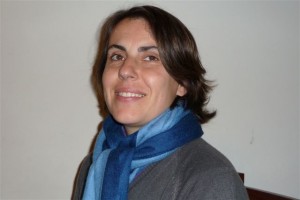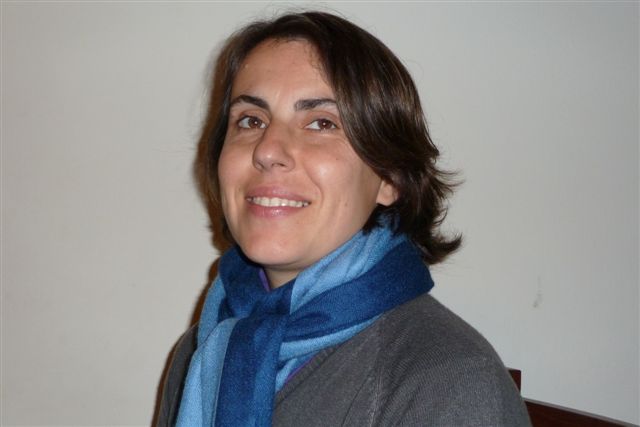Theology of Enough – Carola Tron Urban
 On the 10th Anniversary of the Accra Confession
On the 10th Anniversary of the Accra Confession
The XI assembly of AIPRAL (Alianza de Iglesias Presbiterianas y Reformadas en América Latina), the Latin American region of CMIR celebrated in Guatemala, 2011, reflected on the topic of Water, source of life. I was invited to share some theological perspectives on water. As we celebrate the tenth anniversary of the Accra Confession I will share some of those contributions.[1]
The reformed tradition
Ecclesia reformata sempre reformanda is not only a phrase of our ID card but also should be part of our religious DNA. The dynamics that goes beyond the idea of being always in a process of reformation, change, movement has become a challenge for all of us in our daily life. Reformed theology is a distinctive way of producing theology where the method is an important part of its DNA composition. Theology is always contextual and it talks itself about the method. We think and reflect about God from our uniqueness. The result of those thoughts will be very peculiar for each of us: women, men, children, young, elders, poor, rich, migrants, natives, etc.
The process and the context always condition theology. We cannot defend dogmas or unchangeable believes in a changeable world at all.
As we understand reformed theology as an unique method of doing theology, we can affirm that the process of doing theology is contextual and holistic.
However, orthodoxy reserved by itself the name of “Theology” and catalogue everything that was different from its “regula” as “Contextual Theology” as if there is a place in the world where Theology is thought without a context. So, liberation, feminist, womanist, queer, eco, afro theologies, etc. are contextual. While “The Theology” belonged to the centre, the contextual remitted to the periphery.
Creation is relational
The holistic way of considering creation will help us to understand that not only theology is a relational exercise but also that we are relational beings in God. This understanding will be very helpful when we think about issues like, water, earth, food. They are not longer just resources, we are in relationship with them as with everything around as.. We need to stop having a beneficial interest on resources, but a relational and mutual need.
The Accra confession points to some ecological needs:
5. “We have heard that creation continues to groan, in bondage, waiting for its liberation (Rom 8.22). We are challenged by the cries of the people who suffer and by the woundedness of creation itself. We see a dramatic convergence between the suffering of the people and the damage done to the rest of creation.”
The Trinitarian model shows very helpfully the relational and holistic way of the living God.
Nevertheless our “Christian-western culture” has preached so strongly that we as humans were the center of creation to dominate the rest of the species. That led very fast to devastations, injustices, deaths. That is a result of spiritual and material separation as a way of domination over the weak. We have several examples of churches justifying genocide, wars, over the past centuries until nowadays.
Accra confesses:
8.The policy of unlimited growth among industrialized countries and the drive for profit of transnational corporations have plundered the earth and severely damaged the environment. In 1989, one species disappeared each day and by 2000 it was one every hour. Climate change, the depletion of fish stocks, deforestation, soil erosion, and threats to fresh water are among the devastating consequences. Communities are disrupted, livelihoods are lost, coastal regions and Pacific islands are threatened with inundation, and storms increase. High levels of radioactivity threaten health and ecology. Life forms and cultural knowledge are being patented for financial gain.
20.We believe that God has made a covenant with all of creation (Gen 9.8-12). God has brought into being an earth community based on the vision of justice and peace. The covenant is a gift of grace that is not for sale in the market place (Is 55.1). It is an economy of grace for the household of all of creation. Jesus shows that this is an inclusive covenant in which the poor and marginalized are preferential partners and calls us to put justice for the “least of these” (Mt 25.40) at the centre of the community of life. All creation is blessed and included in this covenant (Hos 2.18ff ).
21. Therefore we reject the culture of rampant consumerism and the competitive greed and selfishness of the neoliberal global market system or any other system which claims there is no alternative.
John Calvin was worried about the superfluous culture related to luxury, enviable goods and the excess. That concern has become a monster nowadays. We need to develop a theology of enough to settle down the limits. Humanity needs to rediscover God unlimited presence and action in our limited world. We live in culture where there is no limit: anxiety and many related symptoms are examples of it. On the other hand, economic and political powers are building new walls to disappear those who are in need and exclude them from the system. In which wall side we are located? Who are my neighbors? It is a relational contextual question that requires a contextual theology to answer properly. The sense of emptiness is very strong.
In The Institutes Book III, chapter 7.3 Calvin says:
“The grace of God has appeared, bringing salvation to all men, training us to renounce irreligion and worldly passions and to live sober, upright, and godly lives, in the present age; awaiting our blessed Savior Jesus Christ, who gave himself a people of his own who are the grace of God to hearten us, in order to pave the way for us to worship God truly he removed the two obstacles that chiefly hinder us: namely, ungodliness, to which by nature we are too much inclined; and second, worldly desires, which extend more widely. And by ungodliness, indeed, he not only means superstition but includes also whatever contends against the earnest fear of God. Worldly lusts are also equivalent to the passions of the flesh…”
We need to recover from individualism and self-service churches models to a prophetic conception where we could speak out: enough.*
Enough is a limit in a liquid society. It is a stop in an eternal adolescent society of consumers, and ambitious economic powers. We need to develop a theology of enough.
As a woman I invite you to start at home. Do I have enough…? Enough food, enough clothes, enough water… Enough money, enough time to work, enough time for the family, for resting? Which is my just measure of enough? Which is God measure for the Creation?
As we celebrate the 10th anniversary of the Accra Confession I invite you to rediscover our reformed roots and the limits we need to accept to work for God’s justice in an unlimited culture of consumerism and vacuity, and fulfill our lives with the need of God.
*About the concept of enough see Noble-Bloomfield, Ivette: “Biblical vision of an economy of enough” in: Sheerattan-Bisnauth, Patricia Ed. Power to resist and courage to hope. Caribean Churches Living out the Accra Confession.pp. 41-44.
The Rev. Carola Tron Urban serves as pastor of the Waldensian Church in Uruguay, Vice moderator of the Executive Board of the Waldensian Church of the River Plate; and a member of the Executive Committee of WCRC. She studied theology at ISEDET (Instituto Superior Evangélico de Estudios Teológicos), in Buenos Aires, Argentina.
[1] La Voz 55 (2001), pp. 25-30.

